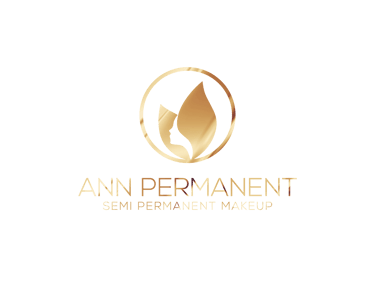We are all concerned with how we look, because we want to look good and feel confident in our own skin. For this reason, it's worthwhile to select services from providers who, like me, approach their work with professionalism and passion.


What is Permanent Makeup?
Permanent makeup is a cosmetic procedure that involves the precise insertion of pigment into the upper layers of the skin using a micro-needle. This technique allows for a long-lasting enhancement of various facial features, including eyebrows, lips, and eyelids. For instance, ombre brows provide a soft, gradient effect that beautifully frames the face, while lip blush adds a subtle tint and definition to the lips, enhancing their natural color. Additionally, permanent eyeliner creates a defined line that accentuates the eyes, eliminating the need for daily makeup application. This innovative method not only corrects imperfections but also saves time for those with busy lifestyles, allowing them to wake up with a polished look every day.
Permanent Make up London
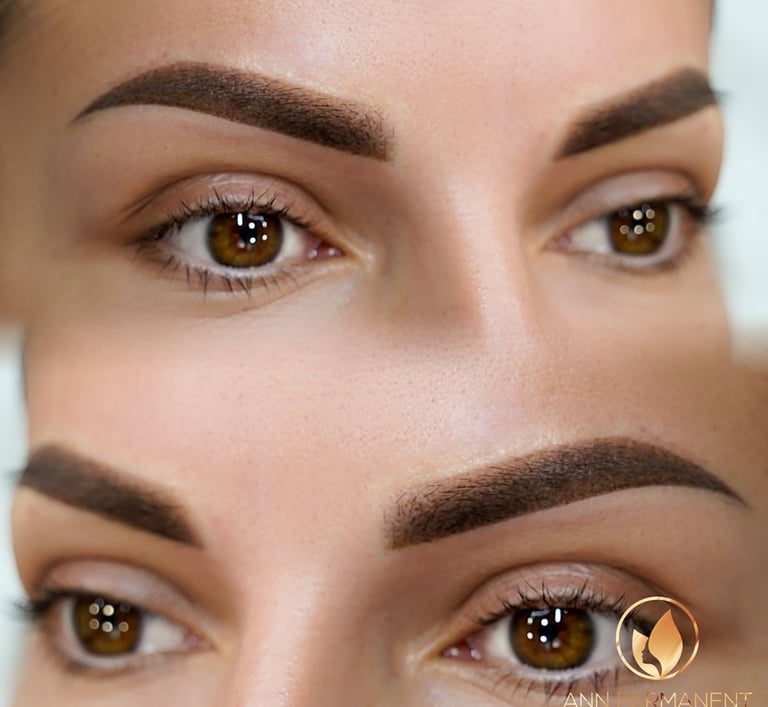

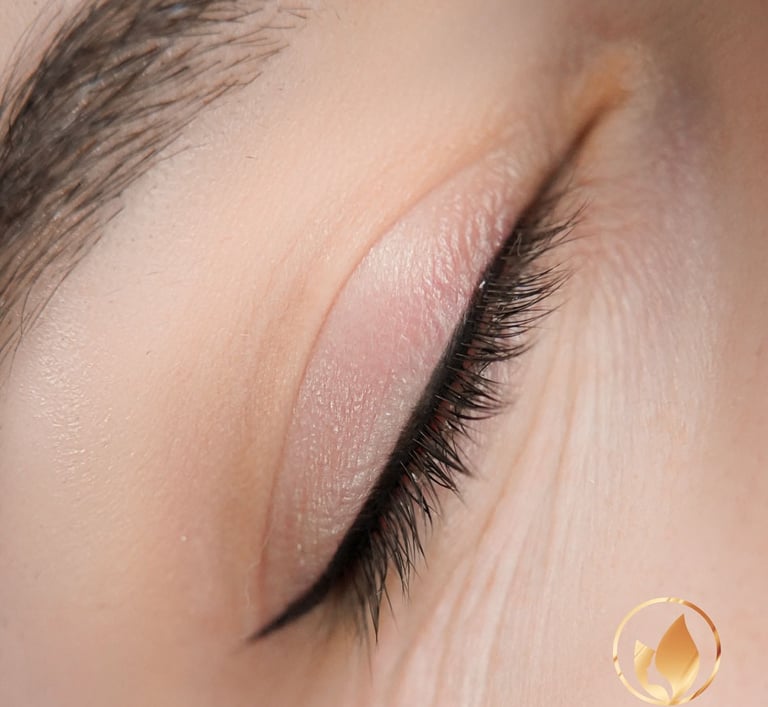

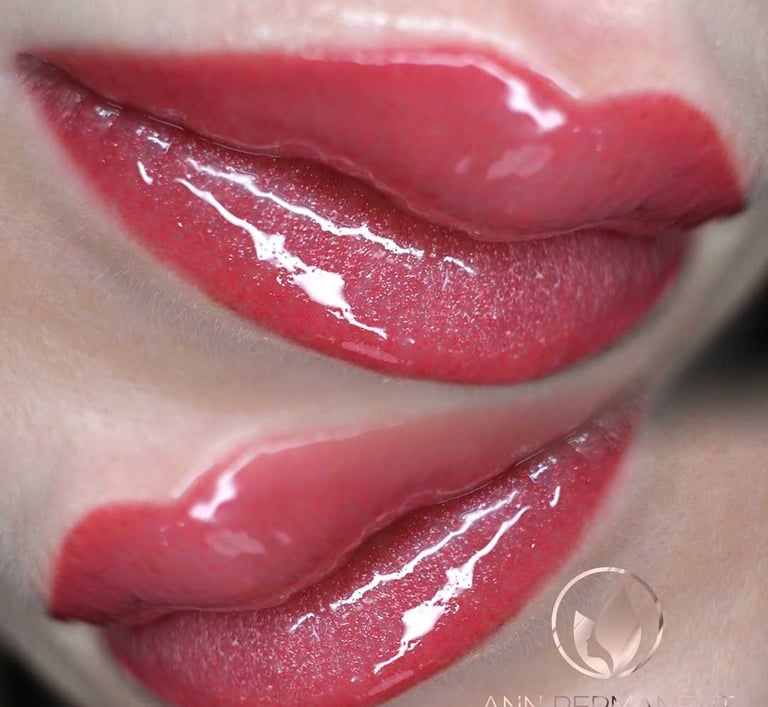

Lipsblush
Permanent eyeliner
Ombre brows
Skin type – Permanent makeup lasts longer on dry skin (2-3 years) than on oily skin (around 1 to 2 years). Each body has a different pigment metabolism, largely an individual matter.
Facial care type – Frequent exfoliating treatments, peels, acids, retinols, etc.
Sun exposure – I always recommend SPF 50+ and advise applying permanent makeup while exposed to the sun.
Pigmentation techniques – Natural subtle brows last for a shorter time compared to bold and intense brows.
Type of pigment, inorganic or organic – Depending on the pigment type, the longevity varies. Over months, the pigment in the skin may change color, and it is a normal reaction, in such cases, permanent makeup is reapplied.
Health issues – Conditions like thyroid problems, hormonal imbalances, diabetes, etc., can prevent the acceptance of permanent makeup.
Health problems are contraindications for the procedure to avoid disappointment or deterioration of appearance due to pigment color change in the skin.
Medications taken – Some medications may cause permanent makeup to last for a shorter duration, prevent the pigment from adhering, or change its color.
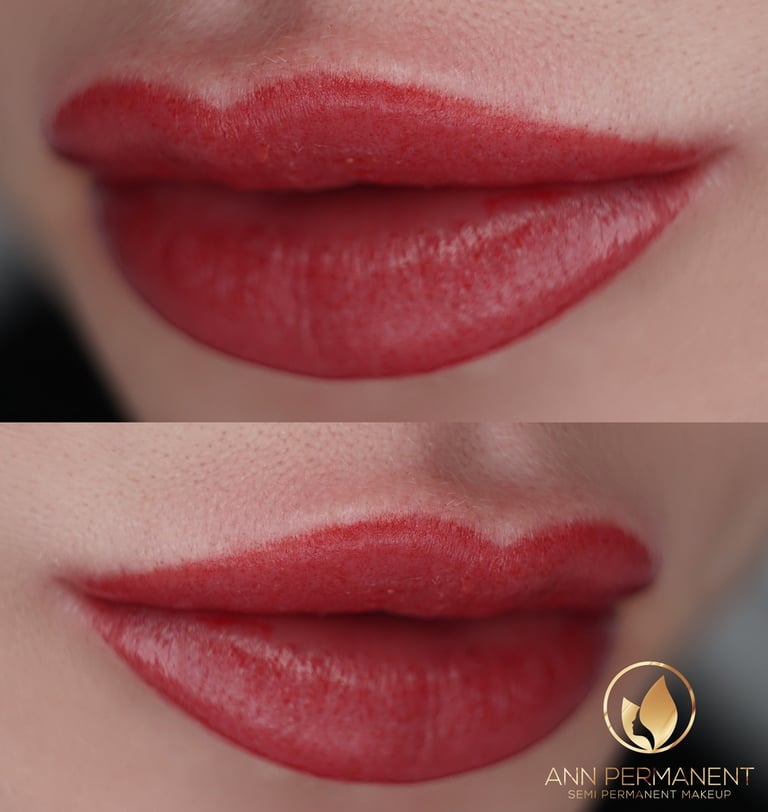

Secrets of the Longevity of Permanent Makeup: Everything You Should Know!
Contraindications for Permanent Makeup Application:
Absolute - Cannot proceed with the procedure:
Pregnancy, breastfeeding
Allergy to PPD (paraphenylenediamine) in pigments
Taking antibiotics
Cancer, epilepsy
Skin diseases in the treatment area: psoriasis, hives, vitiligo
Shingles
Hemophilia (blood clotting disorders), heart diseases, diabetes
Temporary - Schedule for a later date:
Bacterial infections
Pregnancy or lactation period
Fresh scars, recent sunburn
Inflammatory conditions
Weakened immune system
Botulinum toxin treatment (6 months)
Hyaluronic acid injections (3 months)
Plastic surgery (6 months)
Facial laser treatments (4 weeks)
Retinoids, vitamin C serums, cosmetic henna (3 weeks)
Brow/lash growth serums (4 weeks)
Exfoliating treatments (4 weeks)
Vaccinations (4 weeks)
Artificial lashes (1 day)
Herbal medications, detox therapies
Relative - Procedure can be performed:
Taking medications: antidepressants, anticoagulants
Diabetes, hormonal issues (must be regulated)
Cardiac arrhythmia, lidocaine allergy (procedure without anesthesia)
Nonsteroidal anti-inflammatory drug use
Glaucoma is not a contraindication for eyeliner permanent makeup.
Ombre brows, Lipblush, Permanent eyeliner
How should you prepare for permanent makeup procedure?
2 weeks before the procedure:
Retinol-based cosmetics and vitamin C serums should be avoided 4-8 weeks before the procedure.
Avoid sun exposure.
If you have dry skin, make sure to moisturize it, and if you have oily skin, perform a gentle peel one day before the procedure.
Avoid procedures that heavily exfoliate the skin and henna applications.
Discontinue the use of eyebrow or eyelash growth serums 4 weeks before the procedure.
Moisturize your lips.
After the procedure:
Avoid consuming alcohol for 3 days.
Do not touch or rub the treated area.
Avoid using toners, soaps, and cosmetics on the treated area.
Refrain from activities like heavy exercising, sauna, and sunbathing for 2 weeks after the procedure. Do not apply makeup to the treated area.
On the day of the procedure:
Ensure that you have no contraindications for the procedure.
Do not drink coffee or energy drinks.
For eyebrows/eyes/lips: Avoid blood-thinning medications such as aspirin, ibuprofen, and certain vitamins (Niacin, Tran, vitamin E) the day before and on the day of the procedure.
For eyeliner/eyes: Remove contact lenses, and eyelashes must be removed.
For lips: If you've had herpes in the past, purchase over-the-counter medications like Heviran or Hascovir and start taking them on the day of the procedure.


Ombre brows, Lipblush, Permanent eyeliner
